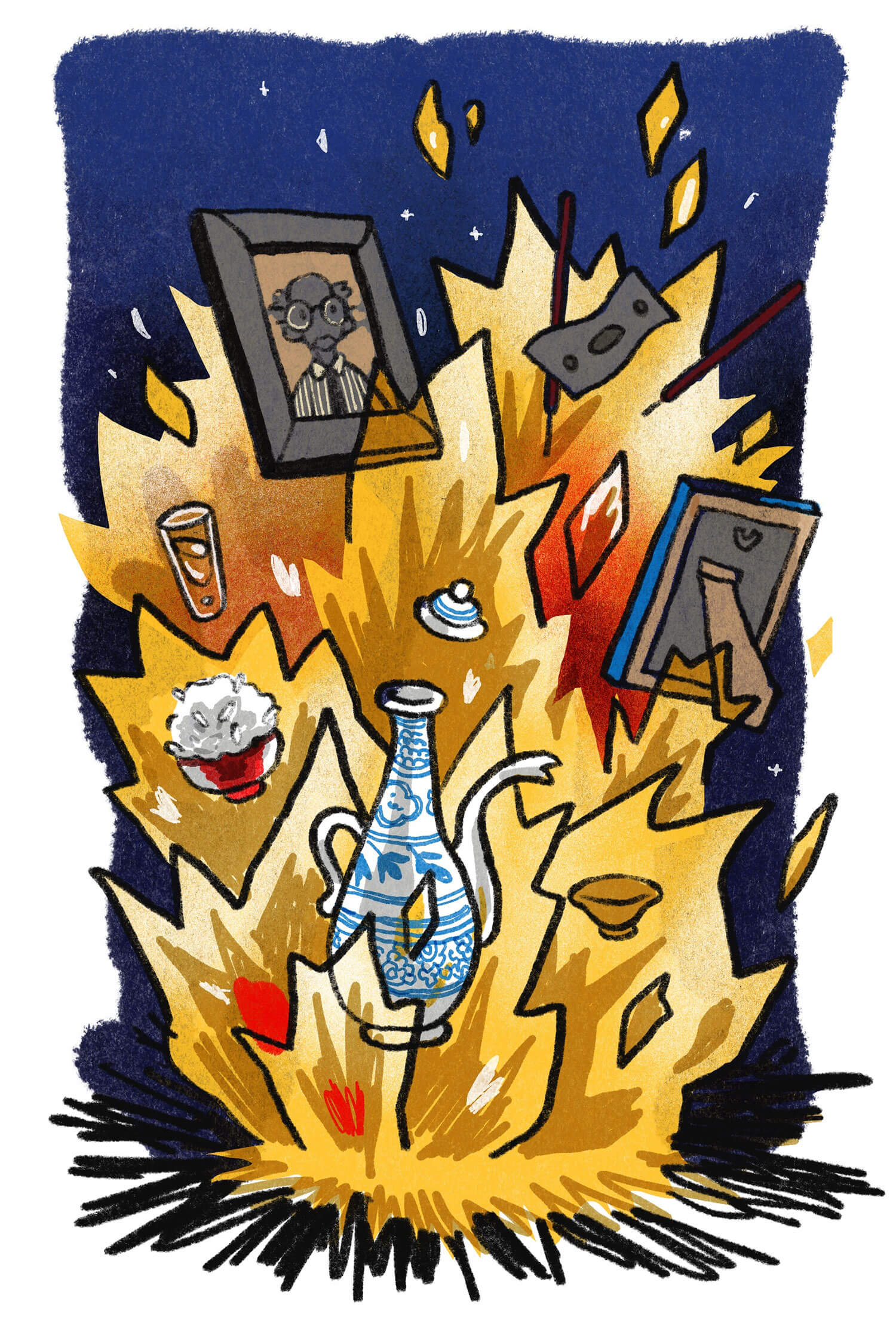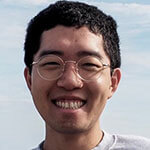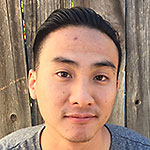
All I have needed Thy hand hath provided
Great is Thy faithfulness, Lord, unto me
- Thomas Chisholm
And the song escapes the lips, as trenchant and striking as it was the first time I heard it in a church, as arresting as it continued to be as I sang it at gospel concerts, at funerals, in English, in Korean. Gratitude stands as a mirror to desperation, present plenitude the contrast to past deprivation. The simplicity and the beauty of the hymn obscure the fact that its lyrics were taken, of all places in the Bible, from Lamentations. The afflicted prophet Jeremiah, whose flesh is torn and bones are crushed, whose teeth are ground and whose breath is choked, nevertheless remembers the Lord.
“We are not consumed.”
“His mercies never fail.”
“They are new every morning; great is thy faithfulness.”
This admission to the Lord comes roughly halfway through the book, the verses composed as part of an acrostic poem. The lines are written as articulations of God’s fidelity to the suffering prophet. The hymn is drawn not from indulgence nor satisfaction; it is an admission of belief, written for times of trouble and sorrow. And it has been in my family for a long time, a kind of coda that has continued to resonate across generations. To the day that he passed, “Great Is Thy Faithfulness” remained my grandfather’s favorite hymn.
I have long known my paternal grandfather to be a pious man. Toward the end of his life, even as he lived with a punctured hole in his throat as a result of cancer, he insisted on singing in the church choir. An autodidact, he taught himself to play the accordion and the organ as a young Chinese boy in Malaya. Music followed him wherever he went, from the gospel halls in which he worshipped all the way across the Malayan Peninsula. As part of a traveling, evangelistic, musical quartet, he and his friends would ride their motorcycles along the coasts, stopping in towns to play, sing, and preach. My grandmother said she first met him on one of these long trips on the road.

By the 1980s, my grandfather was a successful civil engineer, devising plans to ensure the structural integrity of Malaysia’s buildings. Based in Kuala Lumpur, he served energetically in his church and in the broader community, sitting on the board of the mission school he once attended. Yet, there lingered a particular pull, a yearning to move elsewhere. Multiple events conspired to solidify his decision to leave – another visible bout of state corruption when a prince had to be bailed out of Vegas, and the passing of a family member he had long looked after. The destination, after months of deliberation, was to be Houston, Texas.
Having previously been part of a religious minority in Malaysia, my family was to establish itself in the Bible Belt, partaking in the civic life that nourished social conservatism and vigorous religiosity. They joined a local Chinese church where my grandfather became an elder. It was the pastor of this church who furnished my generation, that is, the children of my father and his siblings, with a common Chinese character for our names: he suggested yee (義 or义) for the sons and yi (儀 or 仪) for the daughters. Each person’s name in Chinese was to feature yee in some way – my own name, for example, is Chiu Yee (超義) while my brother’s is Cheok Yee (卓義). The word is composed of the characters for “lamb” (羊) and for “I” or “me” (我), with the lamb over the self and with the word ultimately meaning “righteousness”.
While the word first appeared in oracle bone inscriptions of the Shang dynasty, a Christian interpretation of the character has been applied retrospectively. Semantic continuity comes by thinking of the lamb as the sacrificial lamb, Christ. It retains its meaning of righteousness. The essence of belief had been imprinted on the names all of us in my generation were to carry, a reflection of the faith that had sustained my grandparents from Malaysia to the United States. Yet, for all the ways in which their Christianity had been enriched through their lives in the South, that belief itself had much deeper, more profound roots. It stemmed from the first matriarch who took on new belief. Great is Thy Faithfulness, Lord unto me.
On my father’s side, my ancestors left Canton at the end of the 19th century, ostensibly to flee conflict and famine, and settled at a mudbank in Malaya after sailing down on a wooden junk. My grandfather’s grandmother was the first to encounter a presumably British missionary, and after some time, decided to embrace Christianity. This new system of belief would become entwined with her conception of herself and of her family. The old beliefs are said to have been dealt with in dramatic fashion. Unable to bring herself to do so, she brought to the missionary items designed for ritual use, most likely for ancestral veneration. There could be no synthesis between old spirits and a new god. He proceeded to burn them all to a crisp.
Amidst relatively destitute conditions in Klang, Christianity would become the moral anchor for my great-great-grandmother’s family. She served as its primary stabilizing force. New belief forged a new system of values and ethics, one that emphasized honesty, integrity, and diligence. The influence of faith helped keep her sons out of trouble. I wonder of the extent to which this conversion helped provide the grounds for an ease of living under the British colonists. My great-grandfather found stability as a railroad clerk for the British. My grandfather earned a scholarship to study civil engineering in Glasgow and returned to an independent Malaysia in need of new infrastructure. The financial and linguistic advantages my family wielded often came in concert with Christianity, ones that have continued to be apparent in my life.
Of course, this glosses over the complexities that have existed between the generations – the hurt, the misplaced expectations, the false piety. And yet, faith has remained, eventually becoming habituated in my father and in me.
The Christian faith, to some degree, is also something that I inherited from my mother’s side. However, it has perhaps had less longevity. My mother is South Korean and, as her parents drilled into her, she can trace her lineage to the emperor King Sejong and the naval admiral Yi Sun Shin. The legacy of being of the yangban, the traditional ruling class of dynastic Korea, has been a continuous narrative in our family. It manifests in notions that there is something of a scholarly or refined ideal that my relatives possess. My grandparents, as part of this bourgeois, were caught in difficult circumstances during Japanese colonization and afterward, when there came a time of intense suspicion toward the wealthy as they had often been collaborators with the Japanese.
In the 1970s, my mother’s family moved to Hong Kong where my grandfather helmed a shipping business. It was there, between attending a Korean church and a British school, that my mother and her sisters encountered Christianity. In some senses, conversion was a consequence of an immersion in the social network the church provided. There is, however, a more profound story about an encounter with a new faith, one expressed to them by their fellow diasporic Koreans. The faith of a foreign land was to become familiar.
Korean history bears out the tension between Christianity as something foreign and something national. This is evidenced not only in how Christianity arrived in Korea, ferried home by scholar-officials who had found Catholic texts in China, but also in how it became embedded in modern Korean consciousness, as theologians and reverends marched with the anti-Japanese independence movement of March 1, 1919. Faith itself hardened into something militant, something desperate, during the War in Korea after the Japanese Empire came to an end. Christian refugees flooded from the North to the South, intuiting a geopolitical reorientation of the peninsula along religious lines.
In times of aerial bombardment and gunfire, many Korean Christians withdrew to the mountainside or remote areas, praying from dusk till dawn. Fundamentalism became a style of survival. The scars of war remained, as Christianity sought for itself synonymy with anticommunism. The distance between Christianity and nationalism would shorten in South Korea, buttressed by the preferences of American intervention, as well as conservatives who courted the Christian vote in subsequent elections. Syngman Rhee, the infamous, ruthless, first president of the Republic of Korea, filled his cabinet with Christians. This is the Korean Christianity my mother knew at a remove and I have read of in books and in papers. The faithfulness of a Christian God is not as pristine as it might seem.
Yet incontrovertibly, something about it continues to ring true in my family. My mother and her sisters developed an ardent desire for her parents to be converted to Christianity; they had long held to traditional Korean folk religion. When it finally happened, I am not sure. All I remember is how the jesa, or memorial to the ancestors, that my grandmother used to conduct for my grandfather transformed. No longer was it an offering to a famished spirit; rather, it became an occasion for remembrance. Under pandemic conditions, my aunt’s church recommended that my bored grandmother begin to write out lines of scripture. A Christian faith has found its way to her and amidst my family’s dispersal, remains alive in New York, Seoul, Hong Kong, Macau, and Singapore.
• • •
My first intimation that there was a contradiction between my ethnic heritage and my faith occurred when I was in university. As an undergraduate in English literature in the UK, I’d read and loved Christian writers and thinkers from Britain – Pseudo-Dionysius, Julian of Norwich, John Donne, George Herbert. Yet, year upon year, I struggled to articulate why so many international students from East and Southeast Asia felt alienated from their churches in England. By then, I had begun singing in my university’s gospel choir, finding my thirst for a more arresting style of worship slaked by the songs drawn from African and African American Christian traditions. I had also been swept up in the decolonization movement in the university, finding myself having to stare at the brutality of Christian mission, whether in Kenya, India, or Zimbabwe, in the face.
• • •
conversion
after Danai Gurira
drawn into personal history: how to
decipher the marks of this face, this
skin, the entanglements of past fury,
the clash of voice, dream, God, and
song, borrowed language etched in
the heart. and how to see: the single
droplet tranquil on the forehead, the
release, shimmering, tectonic beneath
the eye whites. from spires and stained
glass to rice cookers and filled spoons,
to breathe in practice, no shearing
of ethnic baggage. we strive for
warmth for every face, colonial
gaze pared away, even in the tussle
of mental terrain, the ascent of that
elusive mountain. beside the bones are
spare like fish, this mud is wiped from
the eyelids: black, yellow, brown, these
songs will learn to stir and sing, to find
a rhyme in a churning sea of milk.
• • •
In thinking through the colonial asymmetries that continued to shape contemporary Christianity, I turned to theologians who could provide the kind of robust intellectual structure that task demanded. Much of what I’d read had been steeped in the history of the Black church, the theological approaches by which one could come to peace with the faith while acknowledging its rabid complicity with colonial structures. I prayed and I read, I read and I prayed.
Attempts to parse these dynamics in my own life and the lives of others of Asian descent sometimes felt like exercises in mapping, in part because I didn’t entirely know which thinkers I could turn to. I read about grassroots theology and minjung theology, tried to break a path forward to multi-ethnic ministries, tried to break out from ethnocentric silos, yet found myself wondering again and again how best to find the language that cut to the heart of this contradiction.
When I arrived in graduate school, I enrolled in a class on East Asian Theologies. By then, I had moved from English to East Asian Studies, yearning for greater familiarity with the philosophical and literary traditions that hewed closer to China and Korea. The course, which was housed in the divinity school, felt cognate with the felt contradiction of being an “Asian Christian”.
Who was the God present at the point of encounter for all these believers and theologians we’d read? Koyama Kosuke wrote of Christianity as the “ointment” furnished by the West, coming alongside the violence of their “guns” to Thailand and Japan.1 C. S. Song argued that God becomes flesh in the reality of suffering in Taiwan and in Asia at large, encountered through the animating power of narrative theology.2 Chung Hyun Kyung writes of Christ as liberation (han-pu-ri or the expulsion of han) and as life-giving power, especially for Korean women.3 For Asian American and Asian Canadian theologians like Paul Nagano and Jung Young Lee, they yearned for a clearer demarcation of the “in-between”, where a Christian identity could allow every contradictory facet of citizenship to hold – between Asia and North America, refugee and citizen. And Simon Chan suggested that “Christianity as a lived reality among ordinary folks has the unique characteristic of both preserving tradition and also changing it as it adapts to new challenges”, something he felt visible in China and in Singapore.4
Inculturation, contextualization, redemption, all these notions were bandied about between Asian Christians amidst the salvific promises needed during the contests of ideology and politics in the 20th century, swept up in the vast currents of decolonization and Cold War tensions. To have been an “Asian Christian” was to have experienced a fundamental tension between belief systems, loyalties, traditions, values, and epistemes.
Faith is as much lived out as it is believed. The fruits flow from the spirit. Amidst the knotty, conceptual, theological questions that belie questions of conversion and syncretism, I felt compelled to think about the history of Christianity in my own family, one where the sense of a paradigm being overturned is fully present. Even as I wrestled with the apparent intellectual and cultural contradictions that lay in the conflict between my ethnic and pietistic identities, it has become apparent that the possibility of an Asian Christianity has been intuitive for most of my life. It is, perhaps, not one that has always needed a robust theological defense, but one that has been made manifest in daily acts of mercy, of grace, of gratitude. Salvation has made itself known to myself and to members of my family in the peace and security it has provided to each of us. Perhaps that is why “Great is Thy Faithfulness” has held such powerful resonance for my family as an articulation of devotion, submission, and joy.
I have been led to consider that while contextual theology is crucial, it may prove reductive to try and force a Christological reading on cultural or religious traditions, especially where such applications are hard to find. Yet, it is also imperative in some form if the truth of the Gospel is to transcend geography, language, and history. The church in East and Southeast Asia, as well as across the diaspora, is heterogenous. Christianity may have been present for generations in some families, while being completely new in others. There remains the necessary impetus to think about the dynamic between Christianity and other belief systems, whether or not this must always lead to a telos of conversion. Amidst rising geopolitical tensions, the reverberations of the pandemic, and the onslaught of natural disasters, it seems that coming to terms with belief in a saving faith will only persist in its urgency.
Acknowledgments: This essay was first written under the tutelage of Professor Chloe Starr at Yale Divinity School. The poem “conversion” was first published in going home (Singapore: Landmark Books, 2022)
This essay was influenced by the following essays:
- Kwame Dawes’ ‘Poets on Hymns: ‘Great Is Thy Faithfulness’ in the Harvard Divinity Bulletin, 2018, https://bulletin.hds.harvard.edu/poets-on-hymns-great-is-thy-faithfulness/
- Christian Wiman’s ‘I Will Love You in the Summertime’ in The American Scholar, 2016, https://theamericanscholar.org/i-will-love-you-in-the-summertime/
- Sarah Ngu’s ‘Drinking Ash Water: A Letter to My Mother’ in Southeast Asian Movement Issue 1: Translation, 2022, https://southeastasianmovement.org/Journal
- Lee Isaac Chung’s ‘Love Letters’ in Image Journal Issue 93, https://imagejournal.org/article/love-letters
(1) Kosuke Koyama, Waterbuffalo Theology (New York: Orbis Books, 1974)
(2) C. S. Song, Third-eye Theology: Theology in Formation in Asian Settings (New York: Orbis Books, 1979)
(3) Chung Hyun Kyung, Struggle to be the sun again: introducing Asian women's theology (New York: Orbis Books, 1979)
(4) Simon Chan, Grassroots Asian Theology: Thinking the Faith from the Ground Up (Illinois: IVP Academic, 2014).

Jonathan Chan is a writer and editor of poems and essays. Born in New York to a Malaysian father and South Korean mother, he was raised in Singapore and educated at Cambridge and Yale Universities. He is the author of the poetry collection "going home" (Landmark, 2022). More of his writing can be found at jonbcy@wordpress.com.

John Enger Cheng serves as creative director of Inheritance. He is a Los Angeles-based artist, designer and illustrator. He graduated from the University of Southern California Roski School of Fine Arts and is co-founder of Winnow+Glean. You can see his illustrative work and store at madebyenger.com.